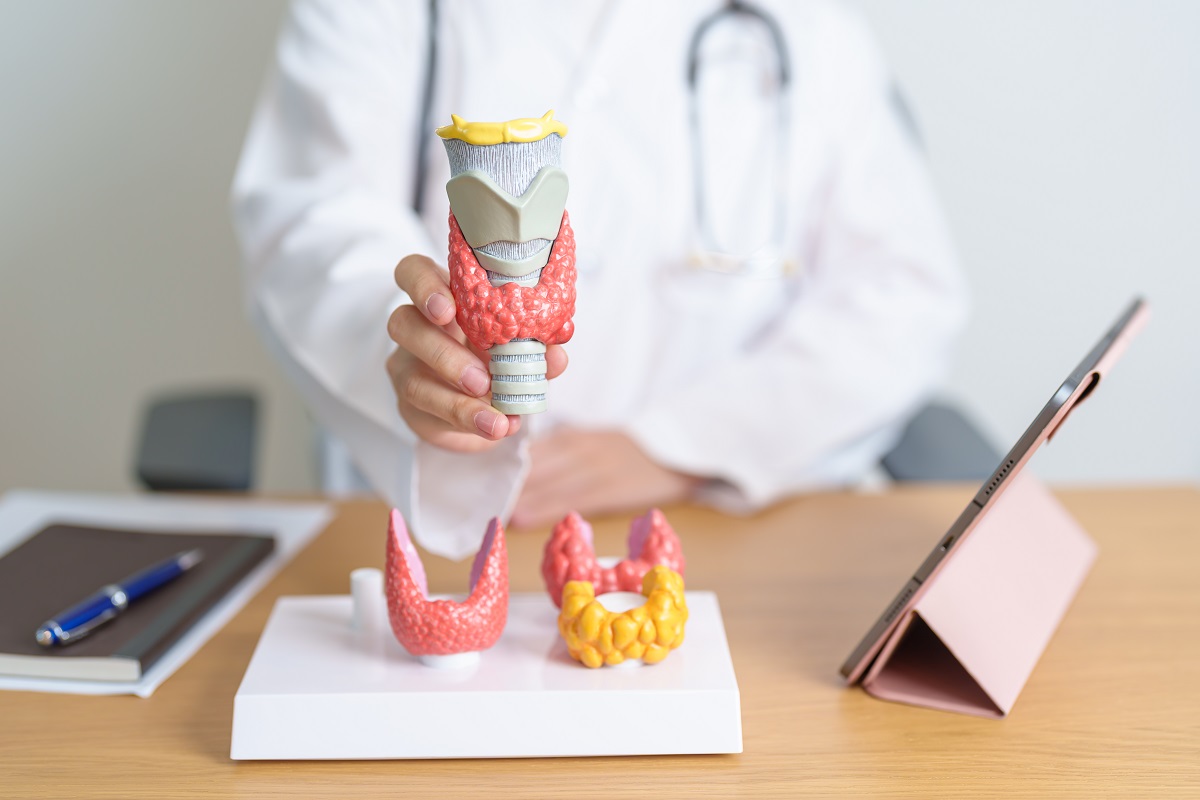This is a rare cancer type that starts in the thyroid gland. A butterfly-shaped gland located in the neck base is called the thyroid gland and it is responsible to release hormones essential for the body’s metabolism. Sometimes, this cancer type is called Hurthle cell carcinoma or oxyphilic cell carcinoma. However, Hurthle cell cancer is one of several cancer types that impact the thyroid.
In addition, Hurthle cell cancer may be more aggressive than other cancers that negatively affect the thyroid gland. One of the most common treatment options used to treat this health problem is surgery to remove the thyroid gland.
Symptoms
People with this cancer type do not always experience symptoms and sometimes, it is detected during a physical examination or imaging test done for other reasons. Check below some symptoms that may occur in people with Hurthle cell cancer:
- Voice changes
- Hoarseness
- Shortness of breath
- Problem with swallowing
- A lump in the neck (below the Adam’s apple)
In any case, if you experience previous symptoms not necessarily mean you have cancer. There are other thyroid conditions that may cause previous symptoms. For example thyroid gland inflammation, goiter (enlargement of the thyroid gland), and others.
Immediately contact a healthcare professional if you have symptoms that concern you.
Causes
While experts do not fully understand why this cancer type occurs, it often happens due to DNA changes (mutations) that develop in the thyroid gland cells. DNA holds specific instructions that tell a cell when to grow, multiply, and die. However, mutated DNA gives cells different instructions, which leads to abnormal growth and multiplication. Thus, the abnormal cells make a tumor and destroy healthy nearby cells. Sometimes, the tumor may break and spread throughout the body (metastasize).
Risk Factors
The following factors may increase your risk of developing Hurthle cell cancer. For example:
- Sex – Women are more likely to develop this cancer type than men.
- Age – The risk of Hurthle cell carcinoma elevates with aging.
- A history of radiation therapy to the head or neck also may increase your risk of this cancer form.
- Family history of thyroid cancer
What Are The Potential Complications of Hurthle Cell Cancer?
- Swallowing and breathing problems – If the cancer begins to grow and passes on the esophagus (the food tube) and trachea (windpipe), you may experience trouble swallowing or breathing.
- Metastasize – This cancer type may break away and affect other tissues and organs in the body. In such cases, recovery becomes more difficult.
Diagnosis
Commonly, doctors use the following tests and procedures to diagnose Hurthle cell cancer. Check some of them below:
- Physical examination – Doctors will check you for abnormalities linked to the thyroid gland during this procedure.
- Blood tests – These tests help doctors identify thyroid function changes.
- Imaging tests – These include CT (computerized tomography) scans, ultrasound, and MRI (magnetic resonance imaging) scans. Imaging tests are used to get detailed images of the thyroid gland. Therefore, physicians can identify an abnormal growth that is present in the thyroid gland.
- Laryngoscopy – During this procedure, doctors will examine your vocal cords by using a special mirror that helps to look into the throat back. Laryngoscopy is usually performed when there is an increased risk that the cancer has spread to the vocal cords.
- Biopsy – This is a procedure in which doctors get a small sample of the thyroid tissue and send it to the laboratory for testing. They look for cancer cells.
Treatment
The primary treatment for people with Hurthle cell cancer is surgery that removes the thyroid gland. However, doctors may recommend other treatments depending on your situation.
Surgery
The procedure that removes the thyroid gland is called thyroidectomy and it is the most common Hurthle cell cancer treatment. During surgery, doctors usually remove a small amount of healthy tissue along with the thyroid gland.
However, near lymph nodes also may be removed if doctors suspect the cancer spread to them. Check below some risks associated with thyroidectomy:
- Damage to the parathyroid glands (these glands help to regulate calcium levels)
- Excessive bleeding
- Injury to the voice box nerve (recurrent laryngeal nerve) may cause temporary or permanent hoarseness or voice loss.
In most cases, healthcare professionals prescribe a medicine (Levothyroxine) after surgery to replace the hormone that the thyroid gland produces. This medicine should be taken for the rest of your life.
Radioactive Iodine Therapy
This therapy involves a capsule that contains a radioactive liquid and it helps to destroy cancer cells that may remain after surgery. However, this is an effective treatment option for people whose cancer has spread. Check below some temporary adverse reactions that may happen after this therapy:
- Dry mouth
- Reduces taste sensations
- Nausea
- Extreme tiredness (fatigue)
- Neck tenderness
Radiation Therapy
This is a special procedure that uses powerful energy beams (including X-rays, protons, or others) to destroy cancer cells. During the procedure, the patient is lying on a table while a special machinery moves around him/her directing radiation.
This therapy is often used when cancer cells remain after surgery, radioactive iodine treatment, or if the cancer spreads to other body organs and tissues. Check below some negative effects:
- Fatigue
- Sunburn-like skin rash
- Sore throat
Targeted Drug Therapy
This therapy involves specific medications that block a protein in the cancer cells leading them to die. Healthcare professionals may perform some tests before this therapy to see if it will work. Check below some adverse reactions:
- Diarrhea
- Extreme tiredness
- Hypertension (high blood pressure)
- Liver problems
Frequently Asked Questions
Can Hurthle cell cancer be cured?
The only treatment option that may cure this cancer type is surgery that removes the thyroid gland. However, people who no longer have the thyroid gland should administer medicines (such as Levothyroxine) for the rest of their life. For more details, discuss it with your healthcare professional.
What are the main symptoms of Hurthle cell cancer?
- A lump in the neck
- Swallowing and breathing problems
- Persistent cough
- Hoarseness
- Voice changes
- Swelling or pain in the front of the neck
If you experience any of the previous symptoms, immediately contact your healthcare professional.
What happens if Hurthle cell cancer is left untreated?
If you ignore the symptoms and do not get treatment for this cancer type, you may experience some complications. For example, trouble breathing and swallowing, and metastasizing (it occurs when cancer breaks and spreads throughout the body negatively affecting different tissues and organs). If the cancer spreads, it becomes more difficult to treat it. If you have additional questions, ask your healthcare provider.




